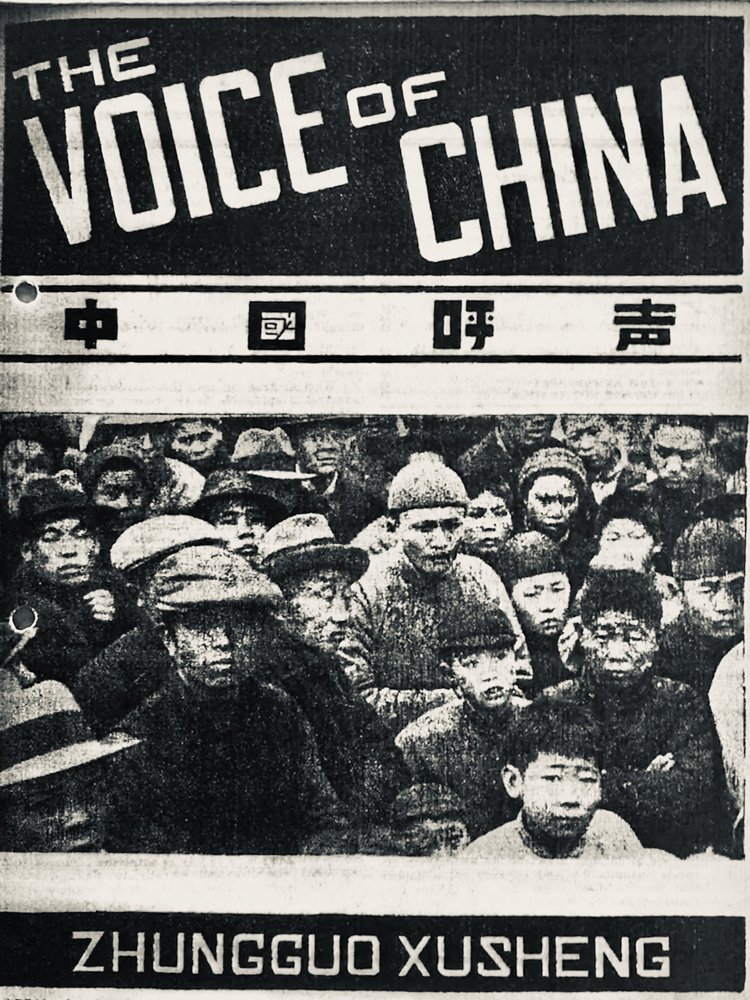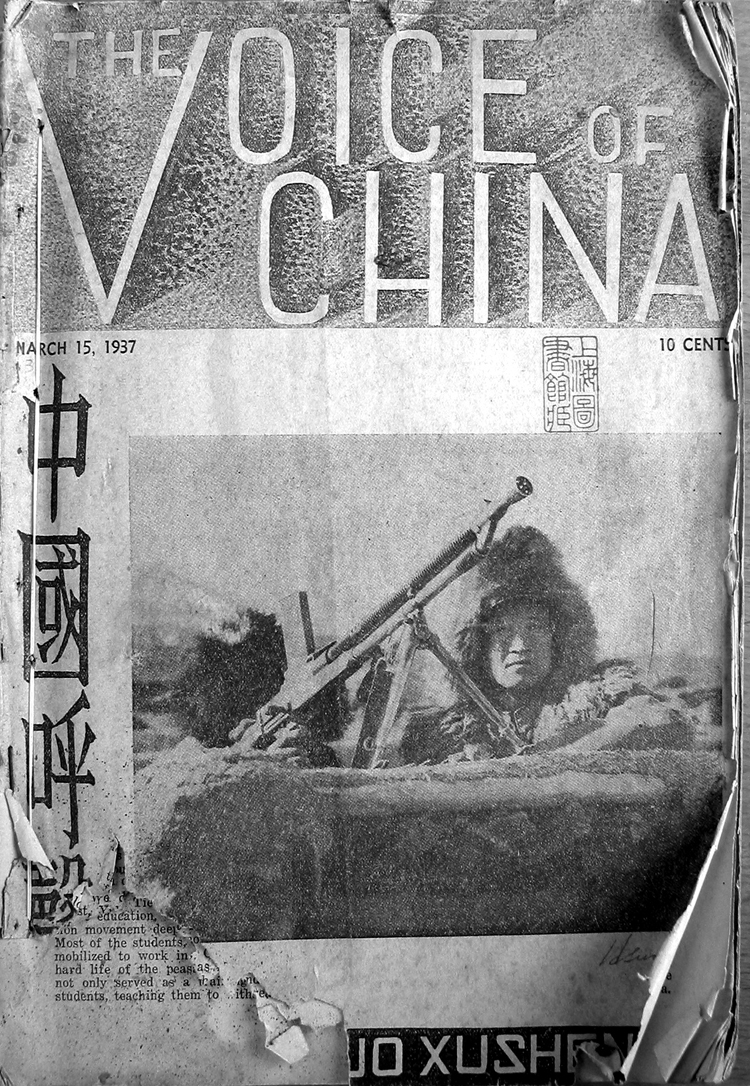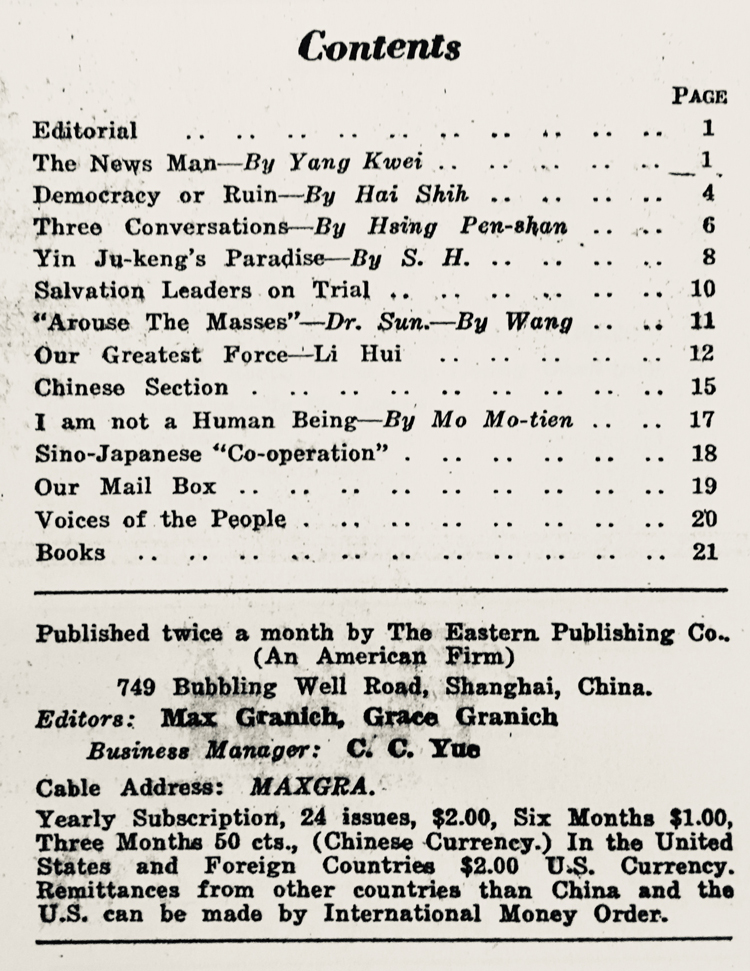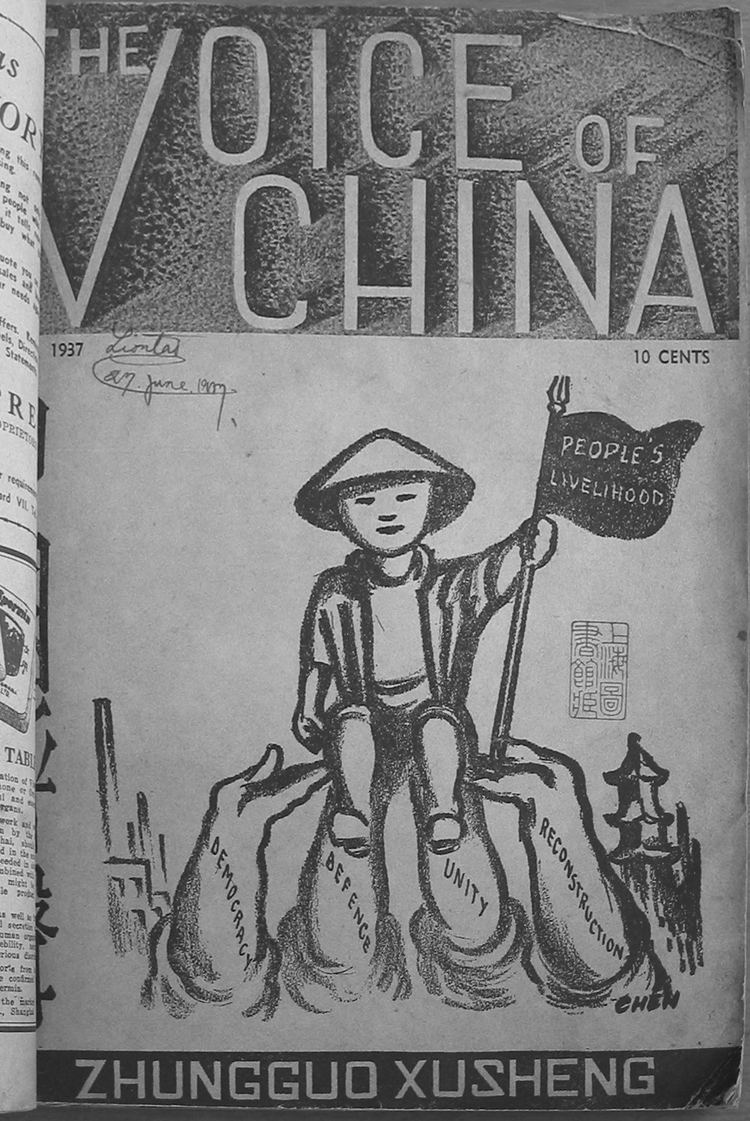Archive
Voice of China
- Magazine
- Voice of China
Word Count: 3
- Agnes SmedleyRichard Paulick
- 1936
- 1937
Bi-weekly political magazine
Eastern Publishing Co., 749 Bubbling Well Road, International Settlement (Nanjing Xi Lu, Jing’an Qu) Shanghai
- English
- Shanghai (CN)
Song Qingling, widow of the founder of the republic, Sun Yatsen, supported the political magazine Voice of China in 1936, which appeared in Shanghai in English. After the Japanese army invaded China in August 1937, the magazine had to cease publication.
Word Count: 39

Cover, Voice of China, no.1, 1 April 1936 (© Eduard Kögel 2006). 
Cover, Voice of China, 15 March 1937 (© Eduard Kögel 2006). 
Content, Voice of China, 15 April 1937 (© Eduard Kögel 2006). 
Cover, Voice of China, 1 June 1937 (© Eduard Kögel 2006). 
Grace & Max Granich, photography, China Reconstructs, September 1972. Voice of China, 1936/1937.
Lu, Hsun (Lu Xun). "Written in Deep Night." Voice of China, vol. 1, no. 6, 1 June 1936, p. 6.
Winslow, Peter (Richard Paulick). "Crisis Education." Voice of China, vol.1, no. 2, 1 April 1936, p. 10–12.
Kögel, Eduard. Zwei Poelzigschüler in der Emigration: Rudolf Hamburger und Richard Paulick zwischen Shanghai und Ost-Berlin (1930–1955). University of Weimar 2006, doi: https://doi.org/10.25643/bauhaus-universitaet.929.Word Count: 57
United States House of Representatives (HUAC),The Role of the Communist Press in The communist Conspiracy, Hearings Before the Committee on Un-American Activities, Eighty-Second Congress, Second Session, January 9, 10, 15, 16 and 17, 1952, Printed for the use of the Committee on Un-American Activities, United State Government Printing Office, Washington 1952.
Word Count: 45
- Shanghai
- Eduard Kögel. "Voice of China." METROMOD Archive, 2021, https://archive.metromod.net/viewer.p/69/2952/object/5140-11304835, last modified: 08-05-2021.
-
Richard PaulickArchitectDesignerShanghai
After studying with Hans Poelzig, Richard Paulick worked in Walter Gropius’s office and frequented the Bauhaus in Dessau before emigrating to Shanghai in 1933. After his return, he became an influential planner and architect in the GDR, from 1950 until his retirement
Word Count: 41
Agnes SmedleyWriterJournalistShanghaiAgnes Smedley was an American journalist, writer and activist. Between 1929 and 1941, she lived in China, where she wrote reportages for European and American newspapers. As a feminist and socialist writer, she focused on the concerns of rural people and paid special attention to artists and their work during the Chinese revolution.
Word Count: 51